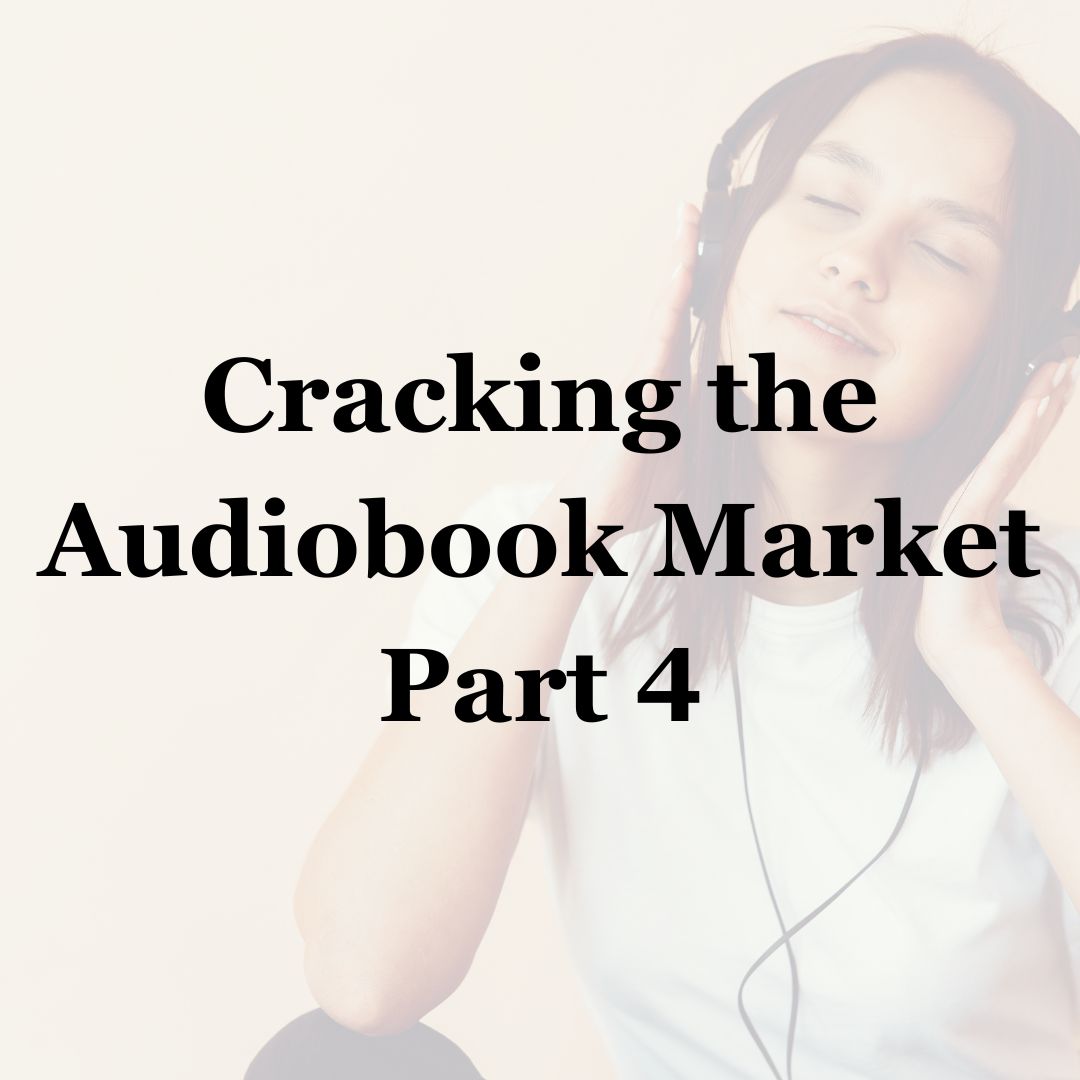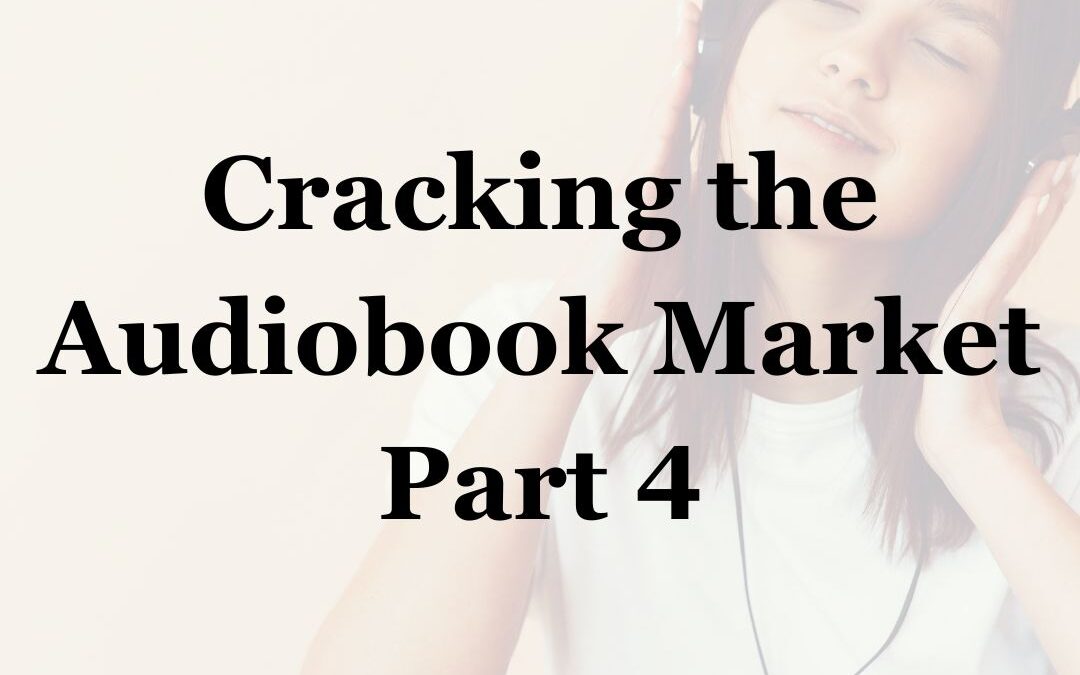A Deep Dive into the Hybrid Model

In the previous posts we explored why you should be in the audiobook market (Part 1), the generic steps any text takes on the journey to audio (Part 2), and the pros and cons of the four paths an author can take on that journey (Part 3). In this post we’ll take a deep dive into the fourth path—the hybrid model—and look at the resources available to authors to help them reach their goals. This is the path that offers the most flexibility in terms of investing time and money.
The cheapest way to go hybrid is to call on your network of talented family and friends. You can barter services or get volunteers to do a lot of the work for minimal overall cost. My first projects were ridiculously cheap to produce as I learned my way around the requirements of producing and distributing a product. My family has roots in audio production. My husband ran a volunteer radio service for the blind for several years. He and I both recorded articles and our daughter edited our and many others’ contributions. When I wanted to put my toe in the water of audio book production, I had back-up.
To start, I recorded three collections of short stories and a children’s book. We already had the microphone, software, and linen closet/recording booth. As author, I prepped the text. My husband and I narrated the short stories and my daughter the children’s book. My daughter edited, I QC’d, and my husband mastered the files. I took care of the distribution and marketing. My husband did it for love (and laundry services). I paid my daughter a going hourly rate (she was in college) for editing and a royalty share for narrating the children’s book (more on that option later).
By the time I had finished these short projects, I had a good handle on the process and platforms. I was ready to tackle one of my lengthy novels. For this I wanted a professional voice. I put out a call to a couple of voice-over classes for auditions and hired a narrator who recorded at our home for a flat fee. Husband and child still contributed their talents and skills. I was very pleased with the product, but felt it was time to explore outside the family/friends network.
A second and more expensive way to go hybrid is to hire an indie narrator/producer. Most folks do that through ACX (audio creation exchange) an Amazon-run marketplace to help content creators find narrators. It is also a single point access to place audiobook files for sale on Audible. The platform and procedures are straight forward and there are tons of videos and chats to help the newbie post their project, sort through auditions, and negotiate a contract.
The key here is that the indie narrator/producer usually takes on four of the generic steps. Once you negotiate a contract, they record, edit, do retakes, and turn over to you final mastered files that meet Audible’s requirements. A key step that they might do for you, but I recommend you keep for yourself, is the quality control listen. You should hear the first run through and give notes to the narrator for retakes, then listen to the retakes as well. This is work for you, but this is your book. You don’t want any embarrassing mistakes. You should negotiate with the narrator, how many retakes they will do depending on whether the mistake was in the text or was their error.
The cost for using an indie narrator/producer can vary greatly. Some will work for a flat fee, but most charge a per finished hour rate anywhere between $200 to $800 depending on the experience of the narrator. A very few—mostly new narrators—will work for a half-share of the royalties. Those narrators have to believe your book will sell well to take on that risk. And you are stuck with Audible and Apple as sole distributors.
Of course, you don’t have to go through ACX to find a narrator/producer. If you know someone in the business that you like for your project, you can approach them directly. You might also want to do some market research. Some genres have “stars”—narrators that might not be famous, but are very popular. There are a number of audiobook fans that buy books in their favorite genre based solely on the narrator. You can look up the best sellers in your genre, see if the narrators show up in more than one project, and contact them.
A third way to go hybrid is by using an audiobook services company such as Findaway Voices (owned by Spotify), Listen Up, or AudioVista (check out Cracking the Audiobook Market Resource Guide for more companies). These companies are slightly different from a full-service audio company talked about in path 2: they have no studios and offer additional services. Like ACX, they help you find an indie narrator/producer, but they act as a middleman between you and the narrator. They curate a list of narrators based on your description of your project. When you and your preferred narrator agree, they provide and enforce a standard contract, collect the fee (based on the negotiated per finished hour rate), pay the narrator and deliver the mastered files. You still have to provide the new square audiobook cover formatted according to standard specifications.
If wanted, you can use these companies to distribute the files (even ones you have produced yourself) to audiobook sellers such as Kobo, Nook, and libraries. They offer over 40 sellers from which you can choose all or some. For that service they track, receive, and distribute royalties to you for a small percentage of the royalty. They distribute to Audible, but we’ll talk about the pros and cons of the that in the next post. The advantage here is having one dashboard to track sales of all sellers rather than setting up individual accounts at each.
To summarize: It’s your time or your money! Hybridization offers you the most flexible way to meet your budget, while maximizing your time. By using talented friends and family you can keep your costs low. You can also negotiate a wide range of up front costs (including free narration if you use royalty shares) by using an indie narrator/producer either through ACX or a more extensive audiobook services company.
Next up in Part 5: once you have your mastered files and new audiobook cover how do you distribute them to audiobook sellers?
Faith L. Justice has nine books out in audio. She learned these lessons the hard way so you don’t have to. This series of posts is an expanded text version of a presentation she made to the New York City Chapter of the Historical Novel Society. The original video is here.
